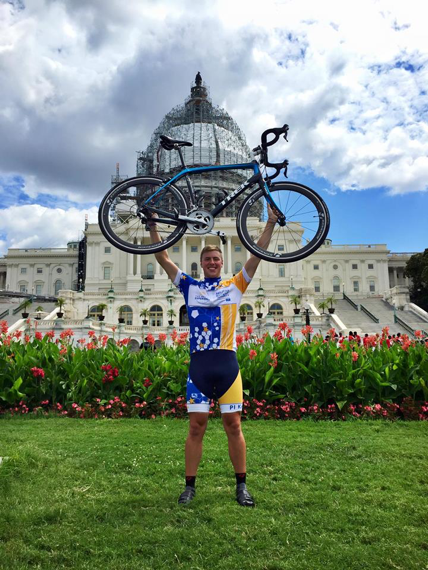Jarrod Wagner | Co-Op Program
 Why did you choose biomedical engineering?
Why did you choose biomedical engineering?
When I was a kid I was very mechanically inclined. I was interested in how things functioned which went along very well with my strongest subject of math and science. My life goal has always been to help people, whether that be by becoming a doctor or a firefighter. BME was suggested as an undergrad degree to me for premed. My second semester at Purdue, I dropped premed after finding how much I liked engineering. I enjoyed the thought process, principles, and skills that went along with it. Going through BME, I saw how I could still help people and I loved it.
What did you do on co-op?
My first two rotations were in development engineering. I obtained the insight of looking into what a real development engineer sometimes does. I spent time looking at design history files (DHFs), making sure their documentation was accurate and up to date as well as looking at established product and their complaints or issues coming from the field.
My last rotation was in marketing, more specifically in product management. This role included supporting a product portfolio. When questions from the field or within the company would arise about my portfolio, I was the go-to person. I could provide information to answer questions, or if needed I could dig into problems, including reaching out to other functional teams to gather information. Assisting in product training for surgeons is also a responsibility that falls under the full-time aspect of this job.
What did you learn from your co-op experience?
I learned a lot more on co-op than I thought I would. Beyond the CAD skills and documentation practices, I was able to enhance my presentation skills. Probably more important than that though, I learned what I want to look for in companies for my future career. I found what is important for me in the culture of a company and what questions to be asking during the interview process to make sure that the company and I are a good fit for each other.
How does your engineering degree apply to the product management role?
I was able to utilize my engineering background through the understanding of the product. It was helpful being able get up to speed on technical material relatively quickly. This background also helped when picking up on differences between my company’s products and the competitors’ products. My degree enabled me to fully communicate with the different positions within the company. I am able to keep up with the engineers in technical discussions, as well as be able to relate that back to the marketing and business side. I really enjoyed being able to use the more interactive/personable side of my personality, while still using the technical aspects of my degree. Through this role, I learned that you could take your passion, interest, and strength to not so apparent places.
What's next for you?
My favorite part of co-op was when I was able to interact with surgeons and answer their questions. I enjoyed informing them about our products, so they could go on and use them to improve the quality of life for their patients. Because of this role’s responsibilities, I can see myself in more of a product management type role instead of a typical engineering position.
What was your favorite memory from your co-op experience?
We had surgeons visiting from Australia to teach them more about a hip system I was assisting with. Surgeons would ask questions about instrumentation or design, and I would assist them in figuring out the problem. A certain surgeon called me by name and asked me a question about an implants design. Both my former boss and I gave our ideas and opinions about the topic. The surgeon actually agreed with my response more than my boss’s. It was very satisfying and exciting to be on level where surgeons respected me as much as the full-time employees around me.
What advice do you have for incoming students?
Most of the greatest experiences in my life have been unexpected. I had no clue I would partake in such things, or that they were even possibilities for me. My advice is to stay open to opportunities that come your way. You never know how they may change your life.
